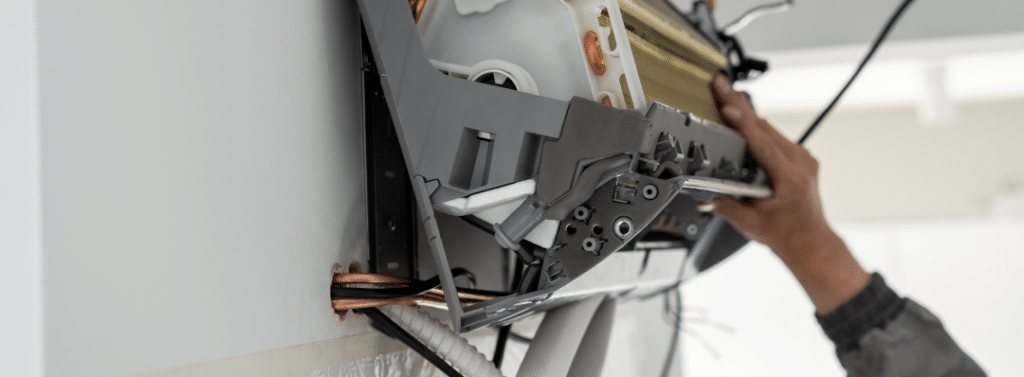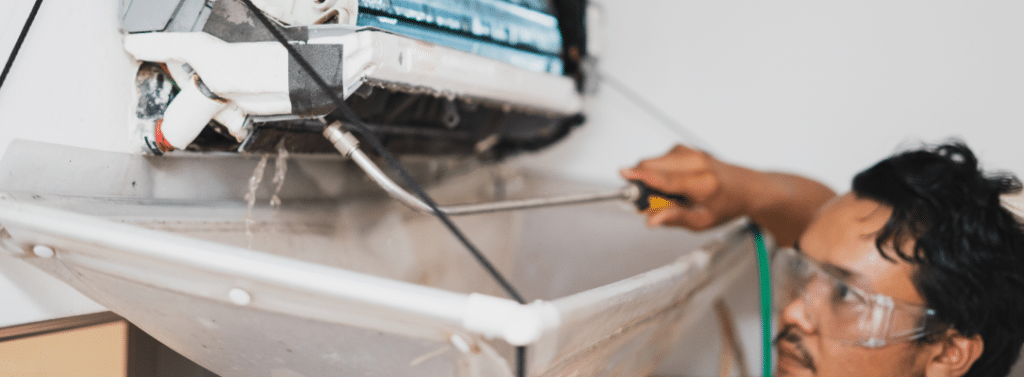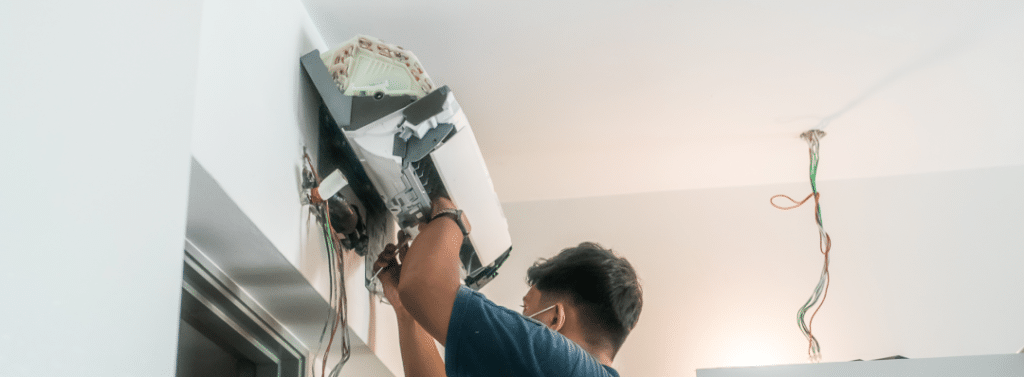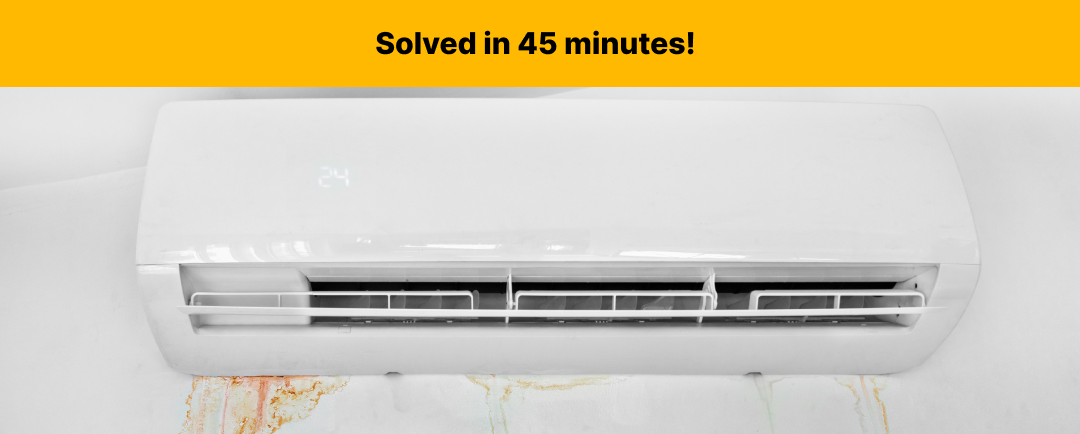When your air conditioner (AC) starts dripping water indoors, it can be more than just an inconvenience. Leaks not only cause damage to your home but can also indicate a bigger problem within the AC unit itself. While quick indoor fixes might seem like the solution, the reality is that a thorough cleaning—inside and out—is usually necessary. Here’s what you need to know about fixing AC water leaks, potential causes, and why simply cleaning from the outside won’t cut it.
If you need aircon services, just use Zonar! It’s free, quick and easy! Find air conditioner technicians near you here! 📍
Why Is Your AC Leaking Water Indoors?

There are several reasons why your AC might be dripping water indoors. Some common causes include:
- Clogged Drain Line: Dirt, mold, or debris can block the drain line, causing water to back up and leak inside.
- Frozen Evaporator Coil: A frozen coil can thaw and overflow, leading to water leaks.
- Dirty Air Filter: A clogged filter can restrict airflow, causing the evaporator coil to freeze and leak.
- Low Refrigerant Levels: Low refrigerant causes the pressure to drop, which can lead to coil freezing and subsequent water leakage.
Steps to Take When Your AC Starts Dripping Water Indoors
Here’s what to do if your AC starts leaking:
Step 1: Turn Off the AC Immediately
The first step is to shut off your AC as soon as you notice water leaking. This will help prevent further damage and allow you to inspect the issue safely.
Step 2: Understand Why a Quick Fix Won’t Work

While it might be tempting to just clean around the unit or the visible parts of the AC, this won’t solve the problem. The water leak is often caused by internal buildup or blockages, which means you need to disassemble the whole unit and clean thoroughly. A superficial cleaning won’t address the root of the issue.
Step 3: Thoroughly Clean the Entire Unit
- Disassemble the Unit: Open the front panel and remove the air filter and other components as needed.
- Clean the Evaporator Coil and Blower Fan: Use a soft brush or a vacuum to remove dust and dirt from the coil and fan. A coil cleaner can also help eliminate stubborn grime.
- Flush the Drain Pan and Drain Line: Clear any buildup in the drain pan and use a wet/dry vacuum to remove blockages from the drain line. It’s important to flush out the entire pipe to ensure there’s no remaining clog.
Step 4: Clean the Pipe Thoroughly
A clogged drain pipe is one of the most common causes of leaks. Make sure to:
- Use a Pipe Cleaner or a Flexible Brush: Run it through the drain pipe to dislodge any debris.
- Flush the Pipe with Water and Vinegar: This will help remove any mold or algae that may have built up over time.
- Reassemble the Unit: Once all components are cleaned and dried, put the unit back together.
3. Rattling Sounds? This Could Be a Sign of Another Problem
A leaking AC might also produce rattling sounds, indicating potential issues such as:
- Loose Screws or Parts: Components may loosen over time, causing vibrations and noise.
- Debris in the Fan Blades: Leaves, dirt, or objects can get stuck and make a rattling sound.
- Worn-Out Bearings or Fan Motor Issues: The fan motor may need lubrication, or bearings could be wearing out.
4. Why a Thorough Cleaning Is Necessary
Merely wiping down visible parts or cleaning around the indoor unit won’t fix the underlying problems that cause AC leaks. Internal components like the drain line and evaporator coil need attention. Ignoring these areas or attempting partial fixes can lead to recurring leaks and potentially more expensive repairs.
5. When to Call a Professional
While you can do some of the cleaning yourself, certain situations require a professional touch:
- Persistent Leaks Even After Cleaning: If water continues to drip despite thorough cleaning, there could be a more significant problem.
- Electrical Issues or Malfunctioning Parts: If your AC trips the circuit breaker or you notice damaged wires, contact a professional immediately.
- Low Refrigerant Levels: Handling refrigerant requires a certified technician.
If you need aircon services, just use Zonar! It’s free, quick and easy! Find air conditioner technicians near you here! 📍
Frequently Asked Questions (FAQs)
Can I Continue Using My AC If It’s Leaking Water?
No, turn off your AC immediately to prevent further damage and address the root cause.
How Often Should I Clean the AC?
Clean the unit at least once every 3-6 months to avoid buildup and ensure proper operation.
Is It Normal for the AC to Make Noise While Leaking?
No, a rattling sound usually indicates loose parts or debris, which should be addressed alongside the water leak.
Don’t wait until a small leak turns into a bigger issue. When your AC starts dripping, remember that simply cleaning the surface won’t solve the problem. Disassemble the unit, thoroughly clean each component, and flush out the pipe to ensure your AC operates smoothly.

Need help from an Expert? Visit Zonar to book reliable aircon services today. Stay updated by following us on Instagram, Facebook, and TikTok!



